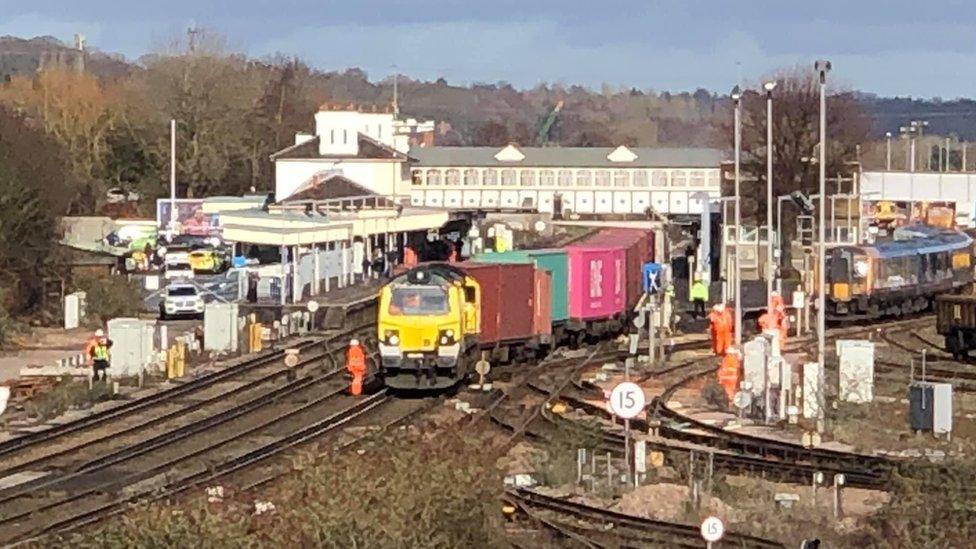Eastleigh train derailment caused by 'failed fastenings'
- Published
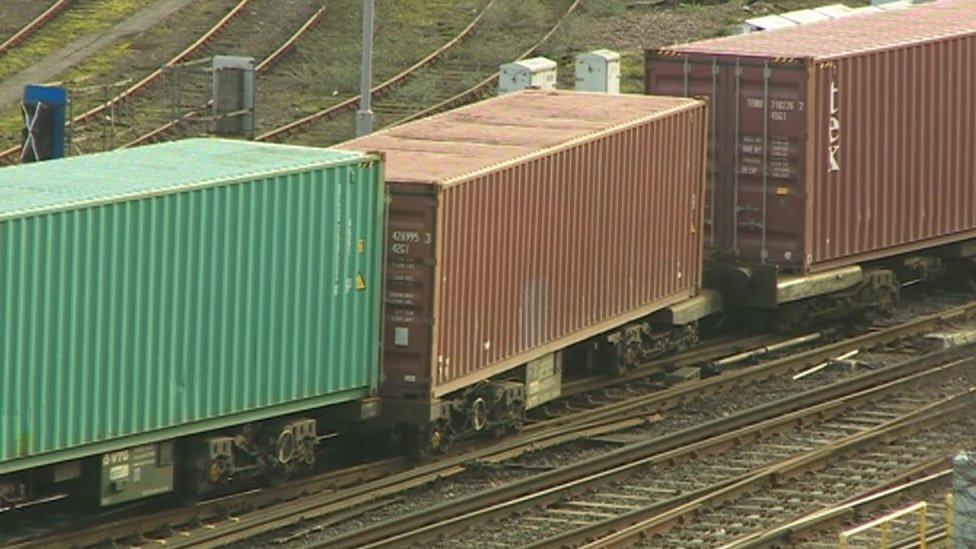
Six wagons came off the track at Eastleigh on Tuesday
A freight train derailment which led to a week of travel disruption was due to failed fastenings which caused rails to move apart, Network Rail has said.
Six wagons came off the track at Eastleigh, blocking the line between Southampton and Basingstoke and damaging points equipment.
Network Rail admitted initial findings showed it was was due to an "infrastructure fault".
It said similar fastenings used in the region had since been inspected.
CrossCountry, SWR and Southern routes were affected by the disruption following the derailment on 28 January, with buses replacing cancelled services and routes diverted.
Network Rail said "significant damage" was caused when the 52-tonne wagons came off the rails.
After the Freightliner wagons were cleared, a 520ft (160m) stretch of temporary track was installed to allow trains to run while a full repair is carried out.
Services resumed earlier this week, but Eastleigh passengers still face continued diversions.
Network Rail said the line would need to be closed for an additional two days for the junction to be replaced.
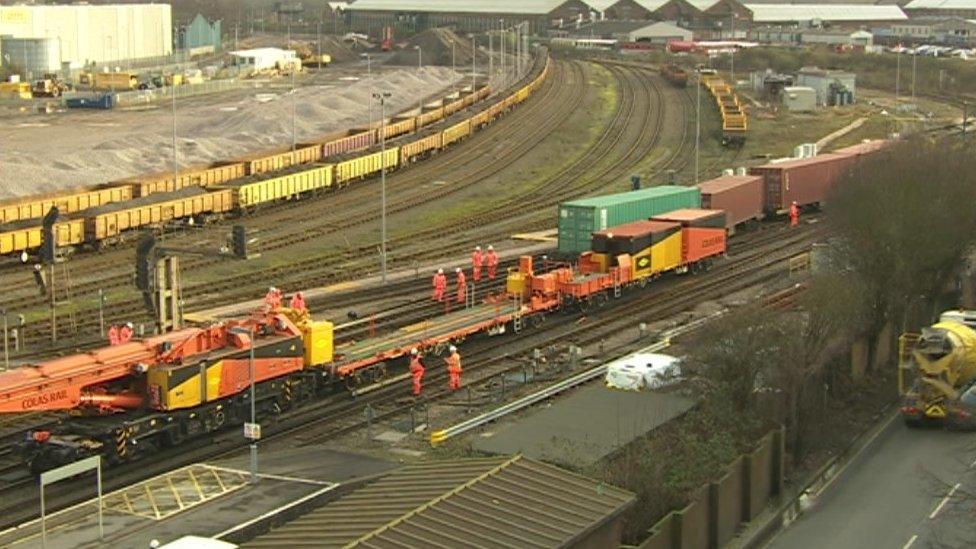
Specialist lifting equipment was brought in to move the stricken freight train carriages
John Halsall, regional managing director of Network Rail, said a small number of fastenings had given way leading to a phenomena known as "gauge spread", when the tracks moved apart slightly and caused the train to derail.
"We've carried out visual and tactile inspections. Out of the several thousand we have carried out, we identified one possible failure and replaced that, and that reflects just how unusual this was."
He said it was "right and proper" that freight and passenger train operators would be compensated for the problems caused by the infrastructure failure.
South Western Railway said trains running on the main line from Winchester to Southampton would be unable to stop at Eastleigh for several weeks while the new track is designed and constructed.
A Rail Accident Investigation Branch report is expected to take several months to complete.

Analysis
By Paul Clifton, BBC South transport correspondent
This will ring alarm bells throughout the industry; it suggests inadequate maintenance and a failure to spot a fault.
It bears some similarities with an incident at Potters Bar in 2002 in which 7 people died, and with a fatal crash at Grayrigg, Cumbria, in 2007.
In both cases, faults with equipment which hold rails a set distance apart on junctions led to the track moving apart.
Today, refreshingly, Network Rail held up its hands and admitted full responsibility. In the past it has waited months for a technical report by the Rail Accident Investigation Branch.
Train operators will expect compensation for the disruption, but now the industry can get on with putting the problem right.

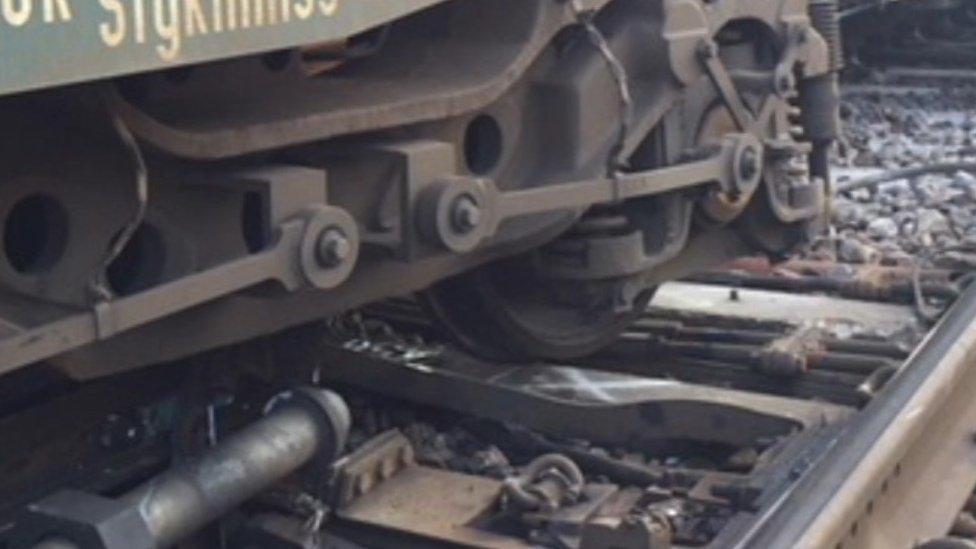
The derailment damaged points equipment
- Published3 February 2020
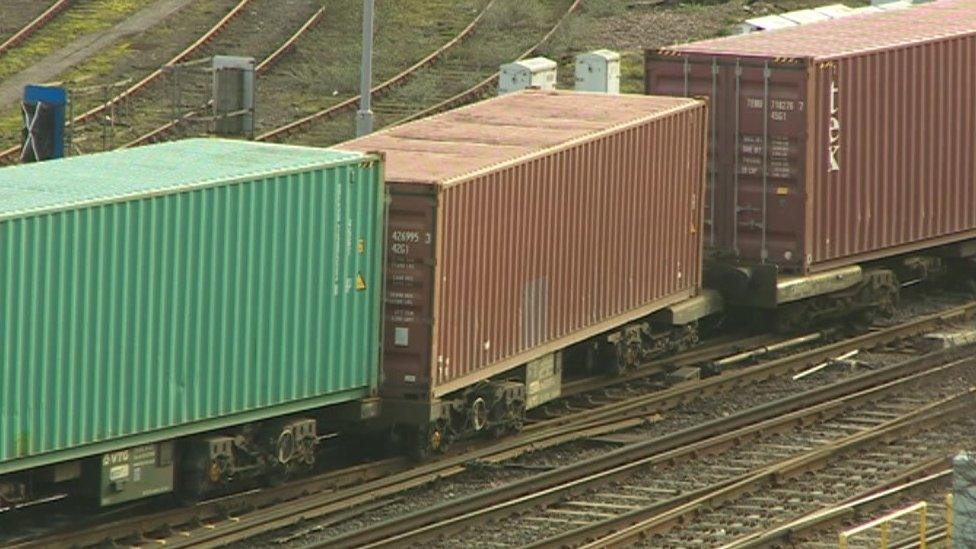
- Published31 January 2020

- Published30 January 2020

- Published30 January 2020
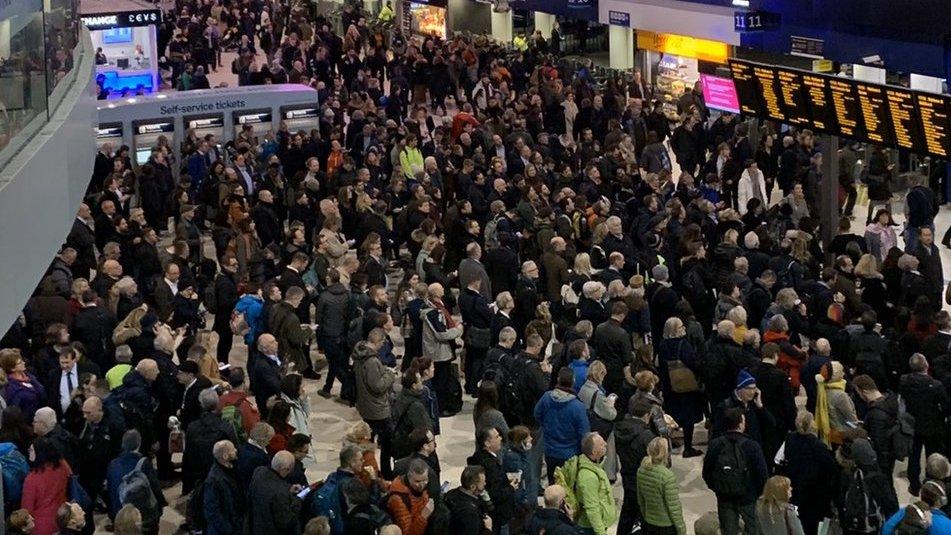
- Published29 January 2020
